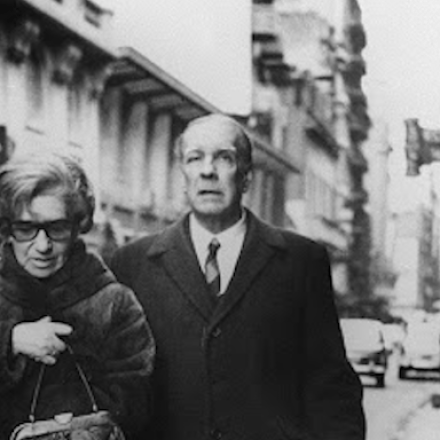Jorge Luis Borges and his ‘bitch’
When Jorge Luis Borges died in 1986, at the age of 87, he left behind 100-odd slender fictions and as many poems, but no novels. Compared with the blockbusting authors of our age, this was a small (if perfectly formed) output. Many of Borges’s glittering ficciones are mere ironic fragments, at best notebook jottings. To















